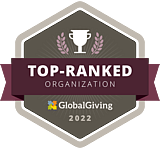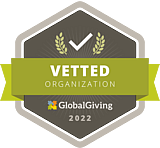What to Expect When Fostering a Child
Foster care is a temporary living situation for children whose parents cannot take care of them, and whose need for care has come to the attention of child welfare agency staff.
A child is put into foster care when they are removed from their home due to their parents’ or guardians’ neglect, physical/ emotional abuse, substance abuse, etc. At that time, a judge would present a reunification plan and a case worker is assigned to help guide and oversee the plan. Failure to complete the reunification plan results in revoked parental rights. While in foster care, children may live with relatives, foster families, or in group facilities.
When trying to figure out what to expect when fostering a child, we have found that it's important to know that many foster children have experienced some form of trauma. According to The Nation’s Children 2019, between 50% and 80% of youth in foster care are reported to have at least one severe behavioral, emotional, or developmental problems and 23% are reported to have more than one.
Support for Foster and Adoptive Parents
- Find a support network: The only people who will truly understand what you’re going through as a foster parent are other foster parents. Finding a support network is invaluable whenever you have questions or need insight into a child’s behaviors or challenges.
- Pre-service training is required to become a foster parent or to adopt. These classes will allow you to have a better understanding of what the foster child has been through, and how to best integrate them into your home. The requirements for training and/or adopting vary from state to state.
- Attend special events offered by your agency to better get to know your child and other families.
- All families and children act and react differently to certain situations. How parents react and move through situations is a key in becoming a successful foster parent. The National Training and Development Curriculum For Foster and Adoptive Parents suggests that developing characteristics such as flexibility, patience, nurturing, compassion, adaptability, and a sense of humor will help strengthen the relationship parents have with their foster youth.
About Kidsave's Method
Kidsave’s model doesn’t include traditional fostering, although our hosts often work hand-in-hand with foster parents. Kidsave’s Family Visit Model allows families to host an older child who is eligible for adoption. Kidsave actively recruits families and individuals that host the kids who participate in our Weekend Miracles and Summer Miracles programs.We are always on the search to find these special people for our two programs.
Through Weekend Miracles program, foster youth are hosted on weekends by their host families. The host families become mentors for the child and in many instances move forward to become the foster youth’s permanent family.Currently this program managed by Kidsave is active in the Los Angeles area. In early 2020 we will launch a branch in Houston, Texas.
Additionally, in the Summer Miracles program, Colombian orphans who cannot find permanent families in their own country, visit the U.S. for a 5-week summer vacation and stay with their host family. This hosting model provides the child with opportunities to move into permanency.
Both programs provide hosts with a smaller commitment than fostering or adopting, making it less intimidating for both the kids and hosts. Bonds develop gradually in a non-threatening environment.
Learn more about hosting here.





